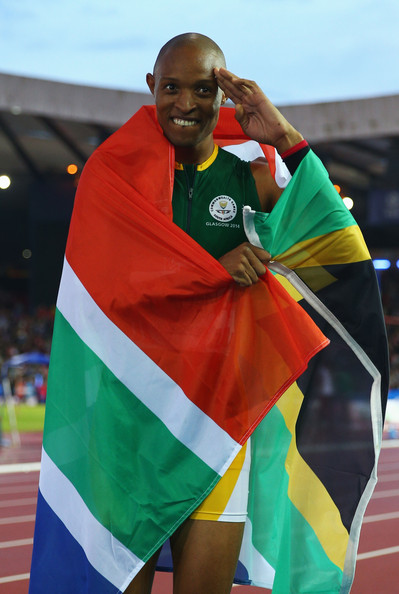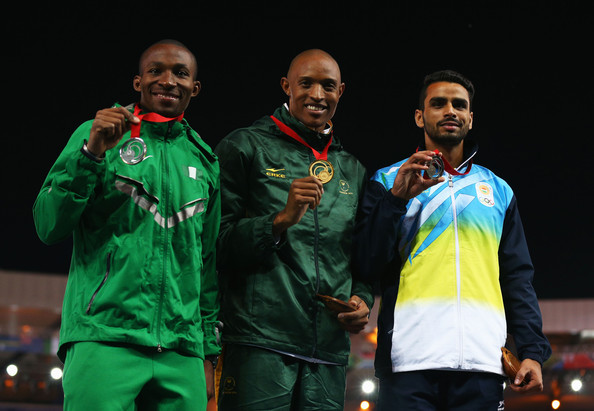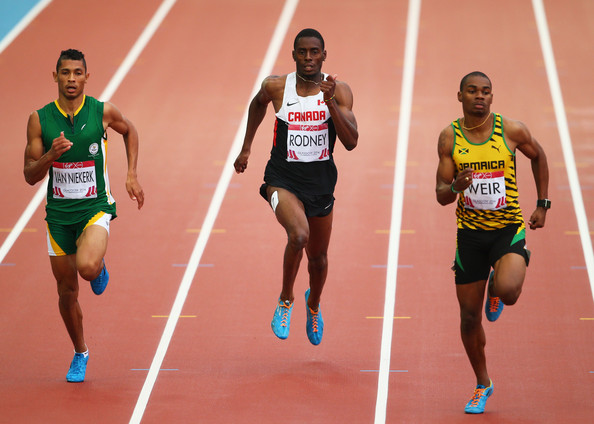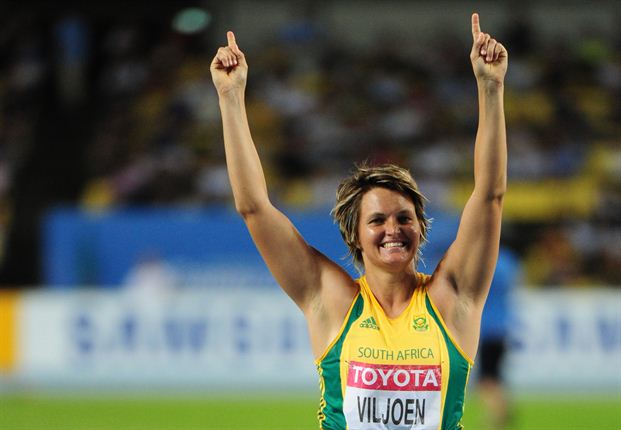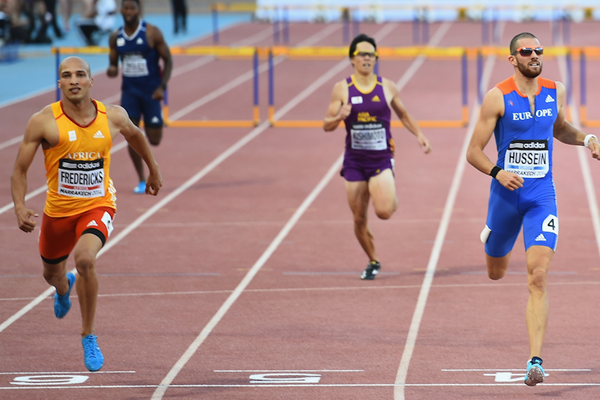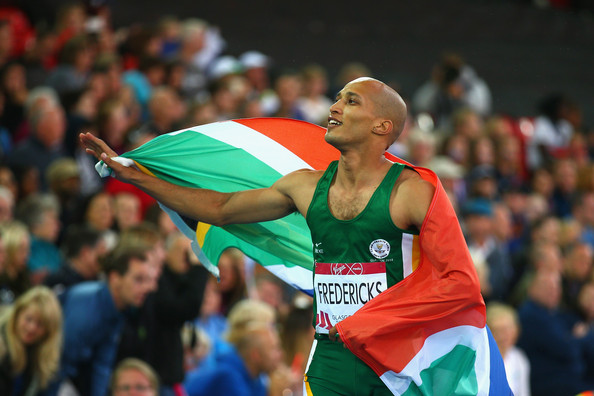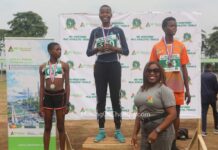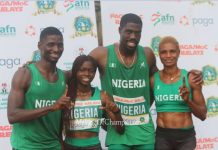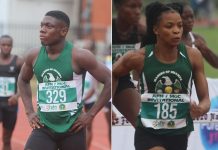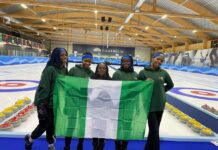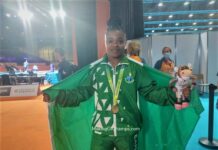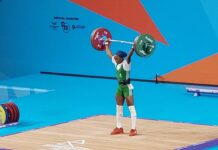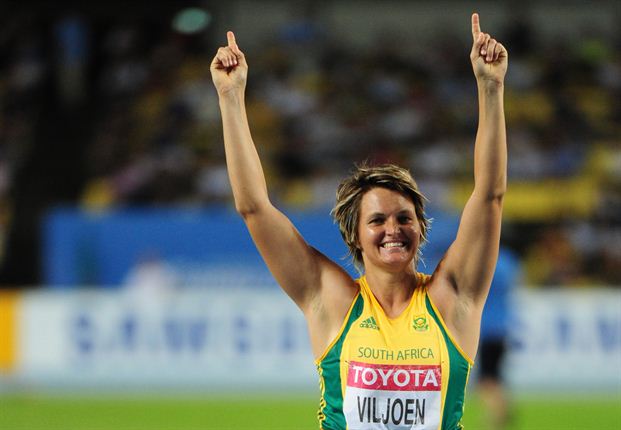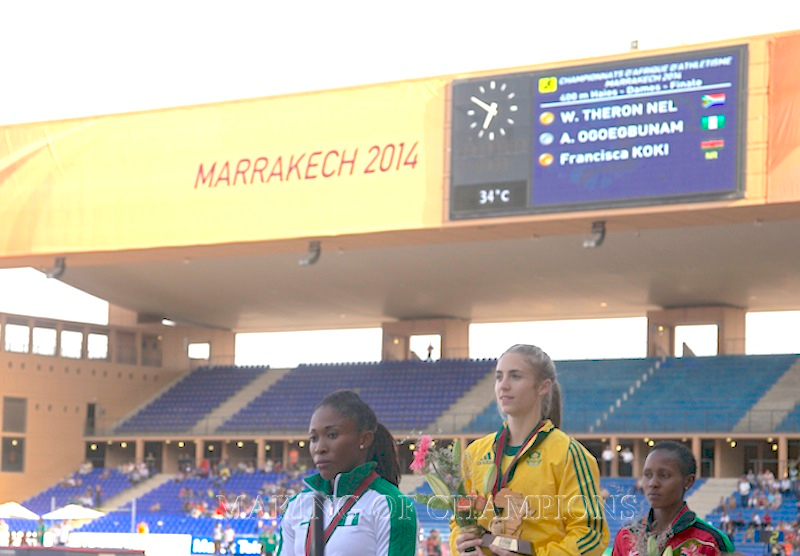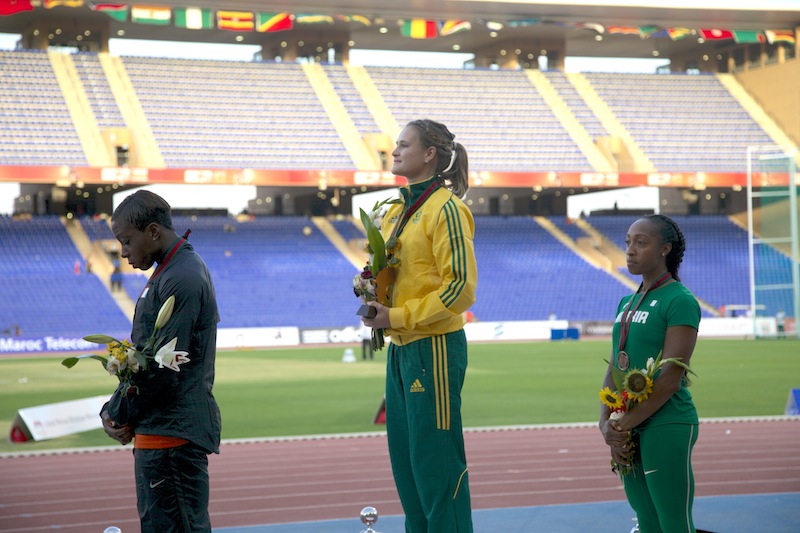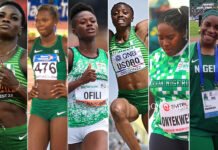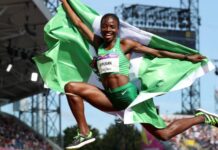The breakthrough performances of many South African athletes in 2014 has confirmed the country’s status as the reigning powerhouse of athletics on the continent.
There is no denying that South Africa’s dominance in African athletics, took a sharp nosedive since their triumph at the 2008 African Championships in Addis Ababa, which completed a hat-trick of consecutive titles won at the continental championship in the past decade.
Since then, the country has witnessed two back to back third place finishes, relinquishing the top spot first to Kenya in 2010 and then Nigeria in 2012, statistically indicating a loss of form of their athletes by over fifty percent in the past four years.
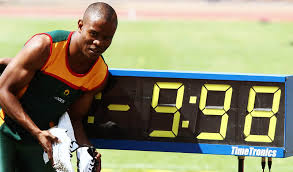
(Photo Credit: http://www.athleticsnews.co.za)
However there was a reversal of fortunes in 2014 with an outstanding season which started off at the South African Championships in April, where a new National Record (NR) of 9.98s was set by Simon Magakwe in the 100m. Other highlights included Cornel Fredericks dethroning record holder L.J. Van Zyl in the 400m hurdles, before relatively unknown Wayde Van Niekerk (men’s 400m), Wenda Theron Nel (women’s 400m hurdles) and Rikenette Steenkamp (women’s 100m hurdles) each won their events.
Two months later, at the Diamond League meeting in New York, Niekerk sensationally broke the 15 year old NR, posting a time of 44.38s, thereby, announcing himself globally as a potential Commonwealth Games and African medalist in his event.
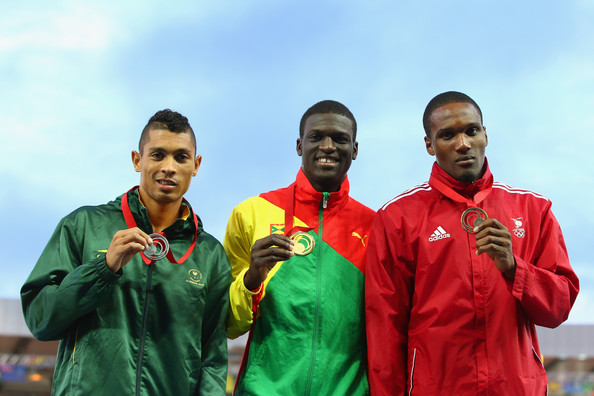
(Photo Credit: Mark Kolbe/Getty Images Europe)
The athletes took this form to the Commonwealth Games in Glasgow where six of them won medals. Khotso Mokoena dethroned Nigeria’s Tosin Oke to win the men’s triple jump while Zarck Visser and Rushwahl Samaai took silver and bronze respectively in the long jump. Fredericks also struck gold in the 400m hurdles while Niekerk and two time Commonwealth Games champion, Sunette Viljoen (javelin) settled for silver.
Unsurprisingly, all six athletes got to the podium at the African Championships which followed a week later in Marrakech, Morocco. Mokoena denied defending champion, Oke a third consecutive title, making him the first South African to win the event, while Fredericks was unstoppable as he dethroned Nigeria’s Amaechi Morton in the hurdles.
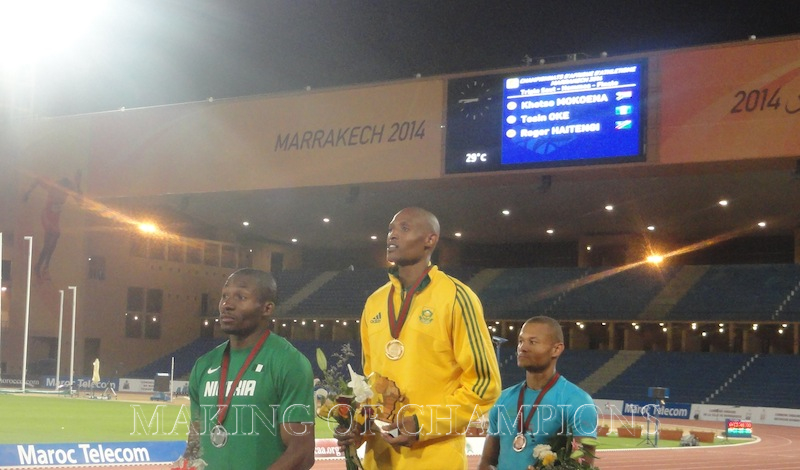
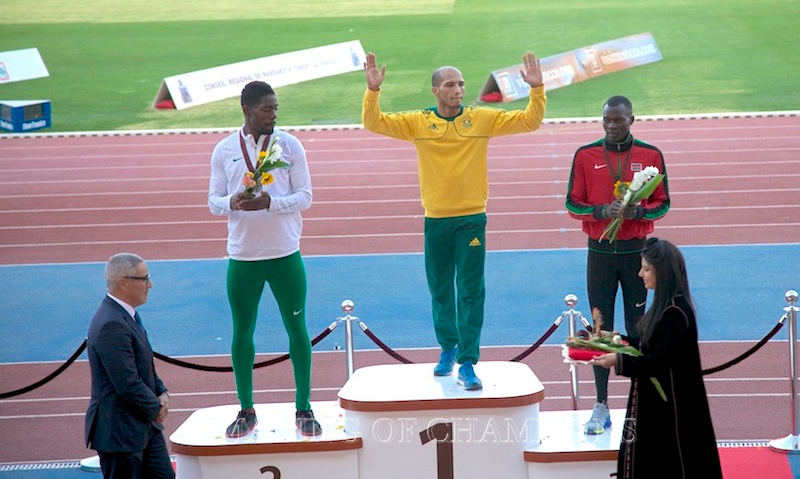
Viljoen continued her unbeaten streak by throwing a Season’s Best (SB) and new Championship Record (CR) of 65.32m to win her fourth African title. She now has more Javelin GOLD medals from the African Championship than any other athlete, male or female, in the 35 year old history of the event.
In the women’s 400m hurdles, Theron Nel beat her Nigerian counterpart, Amaka Ogoegbunam to the title in 55.32s. The hurdler has come a long way from her fifth place finish in Port Novo two years ago (57.06s) after running a PB of 54.82s this season, making her the 13th fastest in the world this year and faster than any other Nigerian athlete since 2012, when Ajoke Odumosu clocked a PB of 54.40s in the semi-finals at the London Olympics.
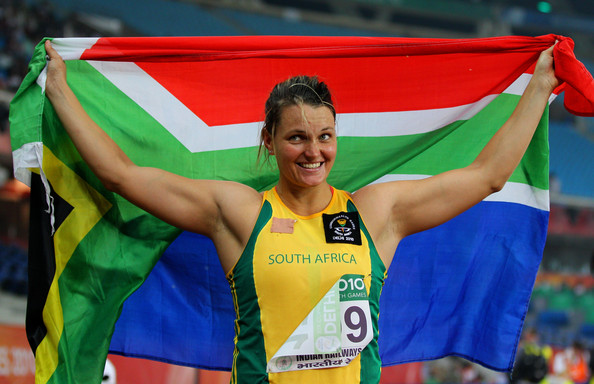
(Photo Credit: Cameron Spencer/Getty Images AsiaPac)
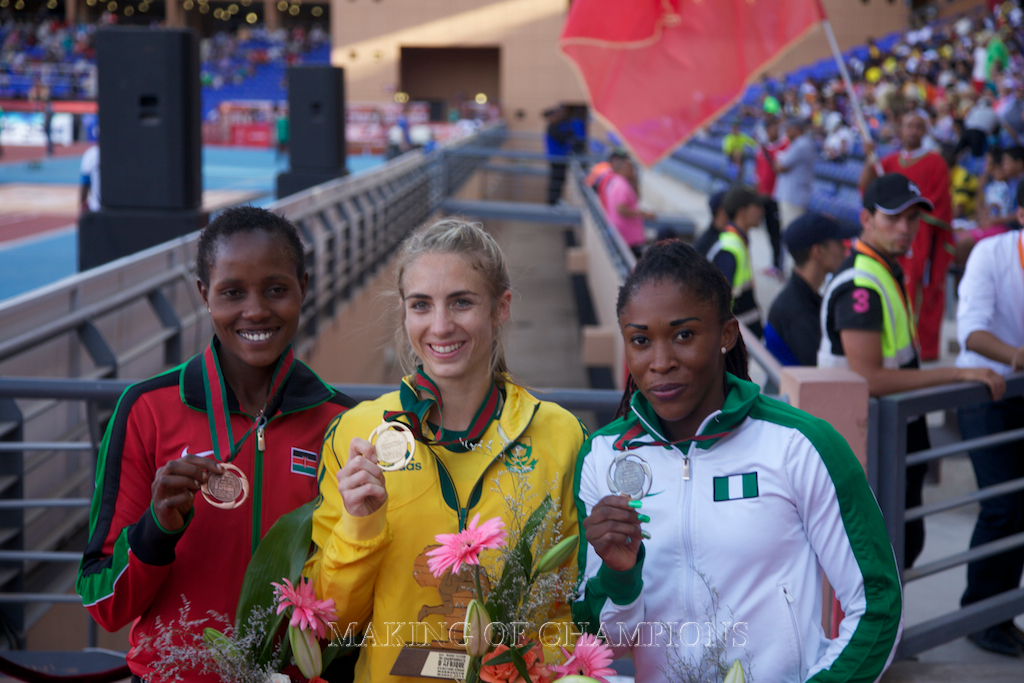
It was a similar story in the women’s 100m hurdles as Steenkamp scooped the country’s first gold medal in the history of the championships.
The South Africans dominated the field events and virtually had representatives to compete with Nigerian athletes in almost every final, comparable to the stiff competition and rivalry that exists between the Jamaicans and Americans at major events.
Although, the country couldn’t win any medal in the sprints after coming to the championships with six of the continent’s Top 10 fastest male athletes in 2014, it doesn’t take away the fact that they have Africa’s fastest man this season (Magakwe with his 9.98s).
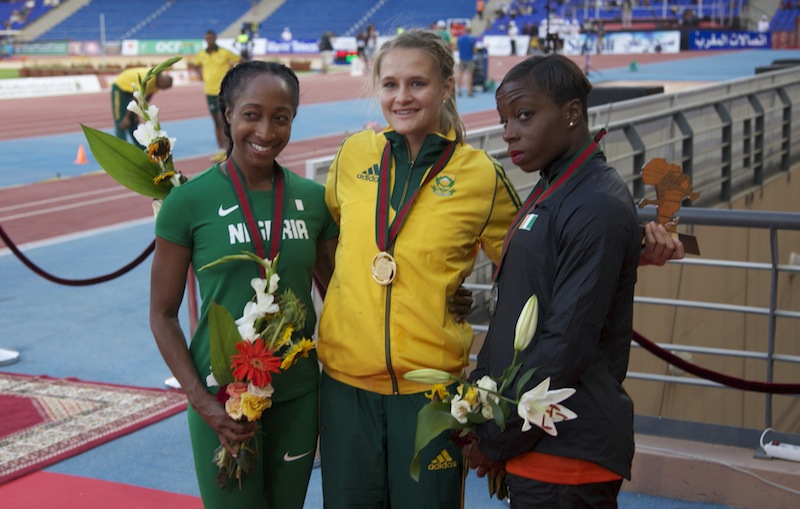
This is a commendable feat, seeing that no Nigerian athlete has been able to go under the 10s mark since Olusoji Fasuba in 2006, when he set the current African Record of 9.85s, making him No.1 on the list of Africa’s top sprinters.
Also, they recorded a non-podium finish in the 200m, a race which they conveniently won in 2008 (Thuso Mpuang and Isabel Le Roux, both posting PBs of 20.53s and 22.69s respectively), while Nigeria has not won the race since Uchenna Emedolu stormed to the title in 2006.
Athletics South Africa (ASA) President Aleck Sichosana threw down the gauntlet with these words, after his country reclaimed the continent’s No.1 ranking at the conclusion of the Championships:
“Our athletes’ performances in Marrakech have redefined South Africa as the powerhouse of athletics in the continent”.
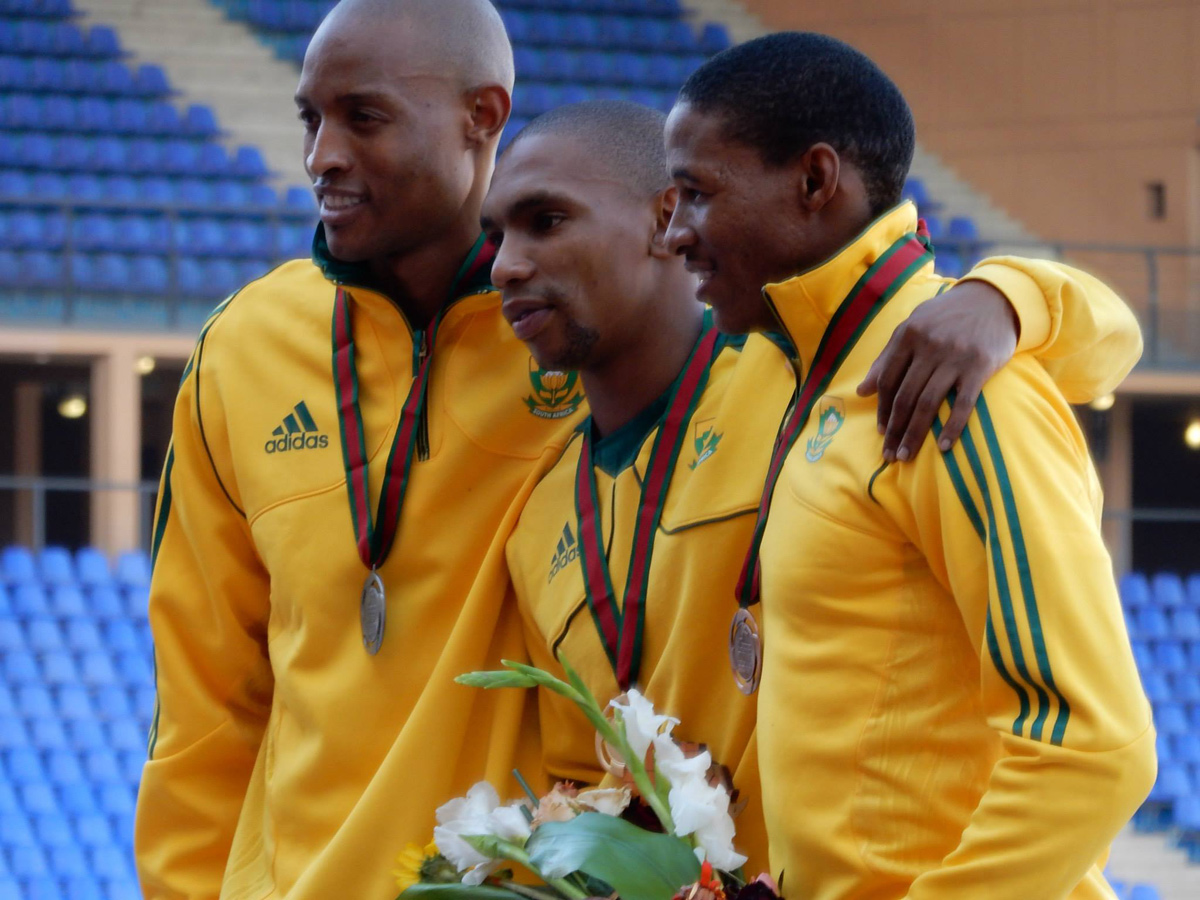
(Photo Credit: AthleticsAfrica)
South Africa’s rising profile should serve as a challenge to Nigeria, who once occupied the enviable position as the continent’s best as far as Track and Field is concerned, but is now gradually losing its position, going by the threats being posed not just by South Africa in the short/middle distant races, but other African nations such as Cote d’Ivoire and Botswana.
The success of South African athletes in 2014 projects how much more they can achieve in years to come with most of their athletes just nearing the peak of their careers. The athletes are definitely going to be a force to watch out for, not only in Africa, but world athletics at large.
